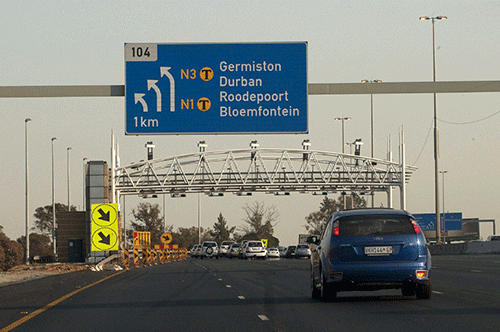As a revenue alternative, the Road Fund Administration (RFA) has reiterated its stance that toll roads are a possible solution to collect taxes to fund road infrastructure in the country.
This is according to RFA CEO Ali Ipinge, who yesterday revealed the toll road system is at the consultation level with relevant stakeholders to deliberate on advantages and disadvantages.
“The impact of the system is that we are going to see a massive increase on our revenue by about one-third of where we are now,” said Ipinge at the company’s 2022 Annual Business Plan Stakeholders Consultative Workshop held in the capital.
He further noted the system proposes introducing tolls along 23 roads in Namibia.
“This is the route to go if Namibia wants to have a sustainable and economically efficient road sector going forward,” he said.
The RFA CEO in June this year noted the administration’s funding gap has been growing over the years and revenue desperately needs to be sourced from somewhere.
He added RFA projects will require about N$4.3 billion per annum to rehabilitate Namibian roads and keep them up to standard as the best roads in Africa.
The administration currently collects only about N$2.5 billion per year from road users, which translates into a shortfall of N$1.8 billion.
“Namibia continues to enjoy good rankings in the road and transport sector. It is first in Africa in terms of quality and access, fifth globally and in terms of roads per capita, it is 23rd globally. This is not by chance but through combination of better planning, road designs, road maintenance strategy, asset management systems and ring-fenced Road User Charging System (RUCS),” said Ipinge.
The RFA currently receives its revenue through the RUCS, which was developed with the aim of economically recovering the full cost of road expenditure from road users in an equitable manner.
The RUCS was designed to ensure revenue needed to provide and maintain roads is raised from road users (including foreign road users) rather than the general taxpayer. The RUCS was also designed to price the use of roads to improve economic efficiency in road transport by removing price distortions and charging road users according to the actual roads’ utilisation.
Looking into the future, Ipinge said the RFA faces numerous challenges but said for road users, an emerging opportunity is the advent of fuel-efficient cars and electric vehicles. This transport optimisation means the RFA will be generating less revenue in the future from fuel levies, thereby further reducing the ability to maintain national roads.
Past year’s performance
At yesterday’s event, the CEO noted that the RFA revenue increased by 11% to N$2.42 billion as at March 2022. The administration invested over N$2.2 billion in the management, maintenance and rehabilitation of roads while the balance was used to repay debt and loans.
“We raised N$350 million from the domestic market to implement the flagship LVSR (Logistic Vehicle System Replacement) strategy. Over 14 roads countrywide were upgraded to low volume seals. RFA also supported re-gravelling and maintenance of roads in Etosha National Park to support the tourism sector. We continue to assist government with the labour-based and access roads programme and connect our communities to critical services and amenities such as schools, clinics and hospitals,” the CEO stated.
Current planning parameters
Meanwhile, the RFA has set increased funding ambitious targets for its next five-year business plan cycle. RUCS income is projected to grow by 32% from N$2.35 billion to N$3.1 billion while further projected expenditure/road sector investment is expected to increase by 21% from N$2 billion to N$3.3 billion.
“This is despite the massive reduction in revenue of N$350 million in response to government request to reduce our fuel levy by 50% to cushion the citizens from the impact of massive fuel increase in April 2022 caused by the Ukraine-Russia conflict,” Ipinge explained.
Popular Democratic Movement (PDM) leader McHenry Venaani on his social media platform yesterday said the tollgate dream shall be vehemently rejected.
“The economic bane on consumers today can never allow asking people to pay more with volatile oil prices. Government go play far, rejected today, tomorrow and the day after,” said Venaani.
Commenting on the toll gate system, local economist Omu Kakujaha-Matundu said the system is a no-go area for Namibia.
“Namibians are taxed to the bone, introducing tolls will strain the hard-pressed populace even further. I think it is straight shameless, insatiably greedy and plain heartless for the RFA to even think of tolls at this very difficult hour of our economy,” he said.
He advised the RFA to remember that very high taxes can stifle economic growth, something we all yearn for.
In a statement, the official opposition, PDM, said the introduction of toll-gates will only burden transport users.
“It is dumb finding that while there is a strong push by South Africa for the scrapping of e-tolls, which will this year cost the South African government R23.7 billion to settle the debt of the South African National Road Agency emanating from e-tolls, the Namibian government nevertheless want to implement the same catastrophic system at the expense of road users,” reads the statement.
PDM further urged Cabinet to abort the introduction of toll-gates in Namibia. It requested government to rather find viable solutions to fund and maintain road infrastructure.
Photo: Tolls


